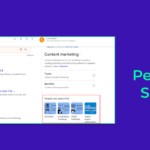Table Of Content
- 1 1. Guest Blogging – Link Building For Startups
- 2 2. Expert Roundups – Link Building For Startups
- 3 3. Ego Bait – Link Building For Startups
- 4 4. Local Directories – Link Building For Startups
- 5 5. Brand Mentions – Link Building For Startups
- 6 6. Sponsorships – Link Building For Startups
- 7 Tools That Can Help You for Link Building For Startups
- 8 Bonus Tips – Link Building For Startups
- 9 Endnote – Remember That You’re Talking To People, Not Robots When You Build Links
Attention startup owners…
Are you looking for a sustainable yet cost effective model to build your online visibility? Would you like to ensure that every penny you spend yields results?
Enter link building. But WHY?
It brings referral traffic and boosts brand visibility. Again, it elevates your site’s authority and attracts high-intent visitors.
But what is link building? And how can it benefit startups like yours?
Precisely, it’s when other sites link to yours.
These inbound links signal to Google that your business is trustworthy. Thus, your overall visibility gets a boost – resulting in more leads and sales!
But The CHALLENGE? Not many people know you. So, how do you get those links?
Well, do not get overwhelmed. This post has something special for you. Here we will share the tried and tested strategies that worked for our startup clients:
- Guest blogging
- Expert roundups
- Ego bait
- Local Directories
- Brand mentions
- Sponsorships
Hold on…there is more to it.
Interestingly, some BONUS tips await you. Plus, we will also reveal some of the best tools that will make your link building process more efficient. So, are you excited?
So, without further ado, let’s get started.
1. Guest Blogging – Link Building For Startups

For those who don’t know, guest blogging is posting blogs on other sites and getting a link back to yours.
We suggest the following method to our clients for landing guest blogging opportunities. In fact, If you follow this strategy diligently, you will attract top prospects in your very first attempt.
So, Here Are The Best Practices To Follow:
- For better results, consider choosing websites with a lower domain authority, ideally 35+.
- To better understand the type of content that appeals to the target audience of a blog, check their top-performing posts. This will give you an idea of the topics and themes that the readers find engaging. By doing so, you can also identify the areas where the blog owner may want to focus while creating new content.
- Next, please make sure that you do not choose the same topic for your blog post as the top-performing post. For example, if the top-performing post is about SEO mistakes, you could write on how to avoid those mistakes (if the post hasn’t covered it yet). Or even write a completely new article about backlinks.
- Come up with some ideas and then present them to the owner of the blog.
Pitching For Guest Post
Our 4-step process for writing a guest post pitch will generate continuous responses.
- Mentioning a specific detail from the article you read on their blog that would be impossible to know without reading it.
- Secondly, go through their homepage. Tell them something unique about their business that you appreciate.
- Thirdly, solve a problem. In fact, offer them a solution for free. Offering them something for free. For example, you can share some free tools that will help them.
- Lastly, clearly mention the benefits readers will get from the article when writing your guest post pitch. Moreover, mention unique perspectives that you can add to their content. Present yourself as a thought leader.
2. Expert Roundups – Link Building For Startups

Expert opinions bring first-hand content that Google loves.
Again, partnering with companies offering complementary products or influencers in your industry leads to mutually beneficial relationships. This results in more links.
An expert roundup is a form of content marketing where a company collects quotes/advice from experts in a particular field. Then compile those insights into a blog post, an ebook, or other types of content.
Expert roundups are important when it comes to link building for startups because they can help to:
- Create relationships with influencers.
- Showcase your company’s knowledge in a particular field.
- Generate backlinks to your website.
So, create an expert roundup blog post featuring industry leaders’ opinions. This can increase website traffic, SEO value, and backlinks.
Plus, this type of blog post is highly effective for driving traffic…
…as experts who participate in the roundup often share the content with their followers, leveraging their large audience.
Again, backlinks from prominent websites can improve your domain authority and search engine ranking.
So, how to create an expert roundup post for startup link building?
Think about a topic relevant to your industry that has always interested you in an expert roundup post. Write your blog post with the most relevant questions, and have experts answer them.
3. Ego Bait – Link Building For Startups

We all love a little ego boost, don’t we?
Ego bait is a link building tactic that encourages influencers to link to your website by putting them in the spotlight. Importantly, this works quite well for startups.
Here you feature an influencer or an expert in your content. And guess what? They are more likely to return the favor.
Everyone likes compliments! The same is applicable to influencers and experts as well.
You inspire your audience by sharing their accomplishments and sharing your content. Create content around a specific person, business, or group.
The following types of ego bait content you must try:
Interviews, reviews, guest posts, shout-outs, Q&A sessions, directories, awards and round-ups.
For example, if your business is a food niche, prepare content around the top 20 food bloggers in your industry. They will appreciate the content and probably share it with a link. To achieve your SEO goals, choose the right type of content and industry leaders.
4. Local Directories – Link Building For Startups

Adding your business to an online directory is an easy way to build links and draw traffic to your site.
It allows you to have a presence on websites that are already indexed by search engines. Also to be found by potential customers looking for businesses in your area.
When it comes to start-up link building, many people rely on online directories to find businesses that offer what they’re looking for.
These directories categorize businesses by niche, location, and category, making it easier for potential customers to locate them.
It is possible to attract highly targeted traffic to your website by adding it to a directory.
When you list your business in a directory, you increase your chances of sales, as well as your visibility. Google typically ranks online directories highly because they are trusted sources.
Most of the time, adding your business to a directory is free. Your business information can be submitted for free to many online directories, such as Bing Places, Yelp, and Foursquare. There are, however, some online directories that charge a listing fee.
With a niche-specific directory, you have a higher chance of reaching your target audience and improving your chances.
5. Brand Mentions – Link Building For Startups

Unlocking startup links building is easier than you think. Unlinked brand mentions happen when people talk about your business online but forget to drop a link. Lucky for you, that’s a golden chance to score a link effortlessly.
Your mission? Spot any mention of your unique products, services, or brand reps. Google them or use tools like Ahrefs Content Explorer to find where your brand is making waves. If you’ve kicked off traditional marketing like press releases, you’ll likely discover articles mentioning your brand.
But, before you ask for a link, follow the rules. First, be polite—no pushing. Consider if a link fits naturally into the article. Second, links should add value. If the article isn’t singing praises about your brand, hold off.
Lastly, always bring something to the table. If the article could use extra info, mention it in your email. Stick to these rules, and you’re on your way to scoring those valuable backlinks.
6. Sponsorships – Link Building For Startups

Grab backlinks from local projects or causes you support. Numerous cause-centric websites highlight their supporters on dedicated donor pages, showcasing sponsor logos with clickable links.
Explore diverse sponsorship avenues:
- Event Sponsorship: Gain visibility and brand exposure by sponsoring events. Your support may earn you a valuable backlink.
- Podcast or Webinar Sponsorship: Consider backing podcasts or webinars for potential backlink opportunities. Your support could translate into a link to your website.
- Conference Sponsorship: Position your brand in front of a niche audience by sponsoring conferences. It’s a strategic move for visibility and potential backlinks.
- Non-Profit Sponsorships: Align with non-profits to support a meaningful cause and secure authoritative backlinks. It’s a win-win, contributing to a great cause while boosting your site’s credibility.
In essence, explore these sponsorship possibilities, tapping into local projects or causes.
Tools That Can Help You for Link Building For Startups
Unlock the power of link building for your startup with these essential tools. If you’re willing to invest in tools, these options can elevate your game:
BuzzStream: Craft a prospect list and streamline outreach effortlessly. BuzzStream is your go-to tool for effective link building campaigns.
Ahrefs: Dive deep into backlink analysis and uncover relevant content and keywords. Ahrefs is a versatile tool for understanding a site’s link landscape.
Moz: Perfect for prospecting expert roundups or enhancing your articles with external links. Use MozBar directly from Google results to gauge the domain authority of potential link sources.
Bonus Tips – Link Building For Startups
Engage in Online Communities: Become an active member in communities like Reddit, Quora, LinkedIn, and Facebook. Contribute to discussions and establish your presence.
Harness Social Searches: Dive into Twitter for shared guest posts on specific topics. Social platforms are gold mines for finding relevant content.
Explore Competitor Backlinks: Peek into your competitors’ backlinks using tools like Ahrefs or SEMRush. If they accept a guest post from a competitor, chances are they’ll welcome yours too.
Your strategy? Blend these techniques for a robust approach to finding guest posting opportunities. Engage with online communities, tap into social searches, analyze competitor backlinks and target sites actively seeking guest contributors. The digital world is your oyster—time to discover its pearls.
Endnote – Remember That You’re Talking To People, Not Robots When You Build Links
Create personalized emails for your link building outreach campaigns. Additionally, it’s important to be patient, as link building is not a quick fix and requires upfront hard work. However, it will always pay off in the end.
That’s it! We hope that these strategies will immensely benefit Link Building for Startups.
Need further help? We have a proven track record of helping startups, brands, and SMBs.
If you want to know more, check out our past work.
Read More:








